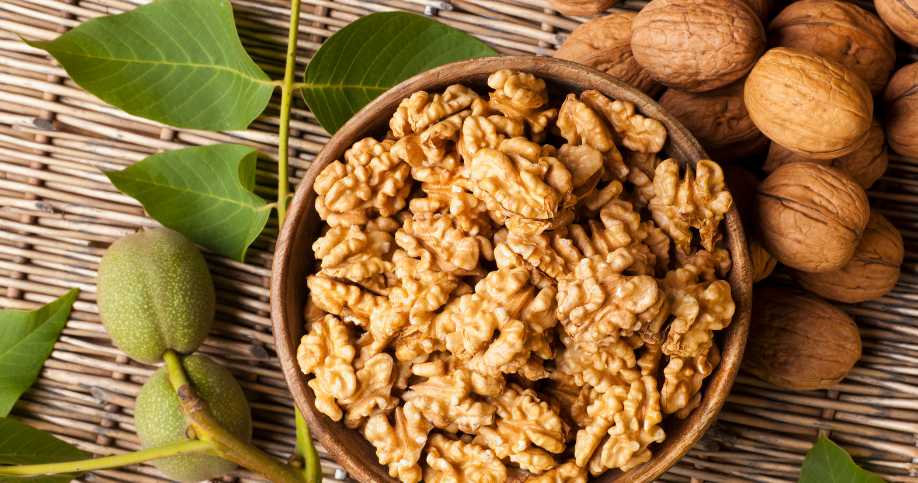Let's talk about Kashmiri Walnuts:
Kashmiri walnuts, also known as Akhrot in Kashmiri, are a unique variety of walnut that is grown in the Kashmir region of India. They are known for their large size, thin shells, and rich flavor. Kashmiri walnuts are also a good source of nutrients, including omega-3 fatty acids, protein, and fiber.
Kashmiri walnuts are grown in the high-altitude valleys of Kashmir, where the climate is ideal for their cultivation. The walnuts are typically harvested in the autumn months, and they are often dried or preserved in order to extend their shelf life.
Kashmiri walnuts are a popular ingredient in Kashmiri cuisine, and they are used in a variety of dishes, including desserts, curries, and stews. Kashmiri walnuts are also a popular snack food, and they can be eaten raw, roasted, or preserved.
Here are some of the benefits of eating Kashmiri walnuts:
- They are a good source of omega-3 fatty acids, which are beneficial for heart health and brain function.
- They are a good source of protein, which is essential for building and repairing muscle tissue.
- They are a good source of fiber, which helps to regulate digestion and promote feelings of fullness.
- They have antioxidant properties, which help to protect the body from damage caused by free radicals.
- They may help to reduce the risk of heart disease, stroke, and type 2 diabetes.
- They may help to improve cognitive function and memory.
If you are looking for a delicious and nutritious snack or ingredient for your cooking, Kashmiri walnuts are a great option. They can be found at Nuts & Kernels
Here are some tips for storing and enjoying Kashmiri walnuts:
- Store walnuts in a cool, dark place in an airtight container.
- Walnuts can be stored in the refrigerator for up to 6 months, or in the freezer for up to 1 year.
- To toast walnuts, preheat the oven to 350 degrees Fahrenheit. Spread the walnuts in a single layer on a baking sheet and toast for 10-12 minutes or until fragrant.
- Walnuts can be eaten raw, roasted, or added to a variety of dishes. They are a delicious and nutritious addition to salads, yogurt, oatmeal, baked goods, and more.
Types of Kashmiri Walnuts:
There are three main types of Kashmiri walnuts:
- Kaghazi walnuts: These are the most common type of Kashmiri walnut. They are known for their thin shells and large kernels. Kaghazi walnuts are also a good source of omega-3 fatty acids and protein.
- Dilpasand walnuts: Dilpasand walnuts are known for their excellent flavor and large size. They are also a good source of nutrients, including omega-3 fatty acids, protein, and fiber.
- Vonth walnuts: Vonth walnuts are known for their hard shells and small kernels. They are also a good source of nutrients, including omega-3 fatty acids, protein, and fiber.
In addition to these three main types, there are a number of other varieties of Kashmiri walnuts, such as:
- Asali walnuts: These walnuts are known for their sweet flavor.
- Chilgoza walnuts: These walnuts are known for their small size and delicate flavor.
- Gucchi walnuts: These walnuts are known for their unique flavor and texture.
Kashmiri walnuts are a popular ingredient in Kashmiri cuisine, and they are used in a variety of dishes, including desserts, curries, and stews. Kashmiri walnuts are also a popular snack food, and they can be eaten raw, roasted, or preserved.
When choosing Kashmiri walnuts, it is important to look for walnuts that are fresh and have a good color. The walnuts should also be free of cracks and blemishes.
Kashmiri walnuts are a delicious and nutritious snack or ingredient for your cooking. They are a good source of omega-3 fatty acids, protein, and fiber. Kashmiri walnuts also have antioxidant properties and may help to reduce the risk of heart disease, stroke, and type 2 diabetes.
BUY NOW Kashmiri Walnuts

